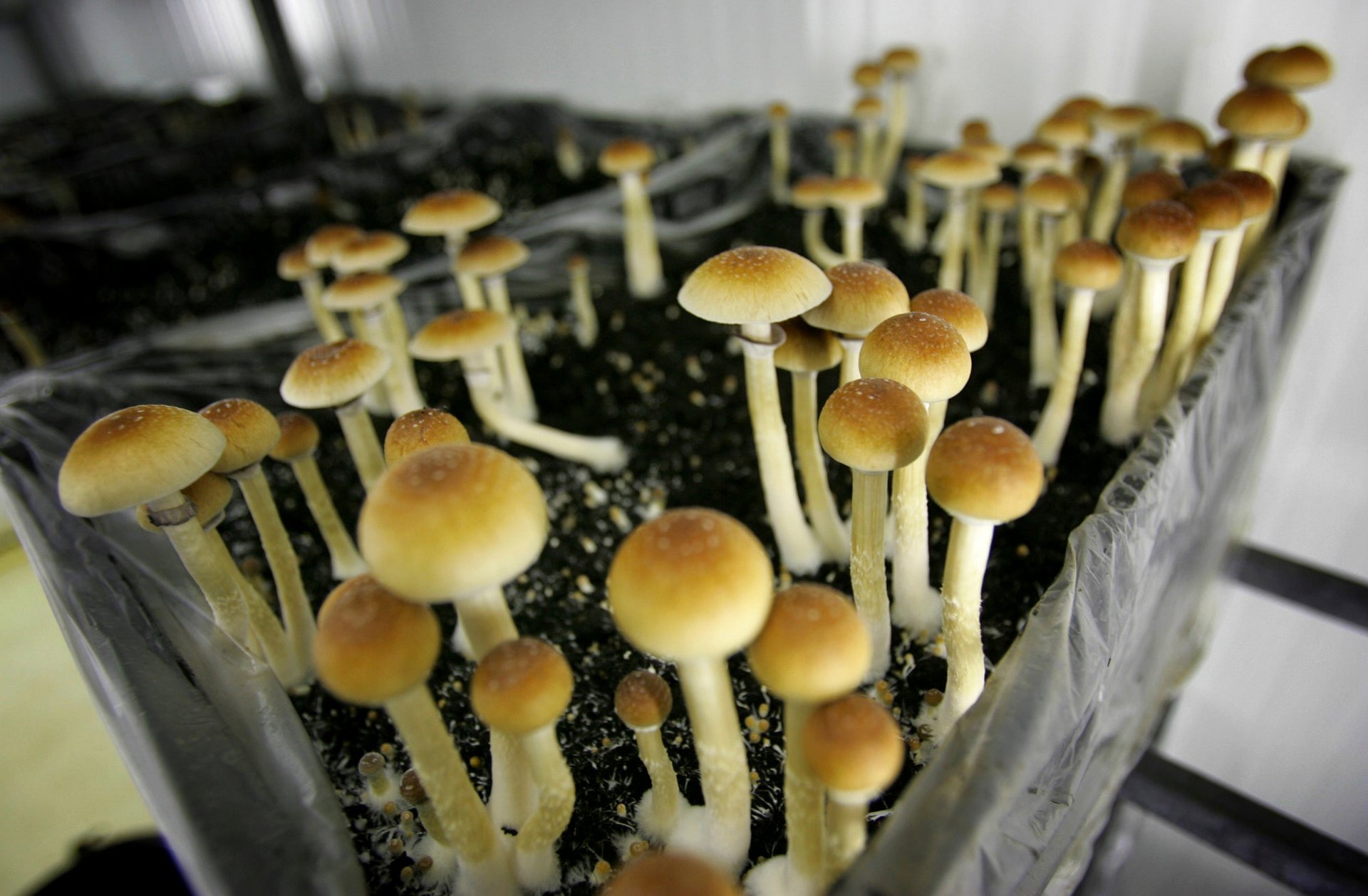Do Canadians have a constitutional right to magic mushrooms?
Where cannabis first trod, magic mushrooms are sure to follow. A Canadian therapist has asked Health Canada to permit the use of psilocybin, the psychedelic ingredient in magic mushrooms, for medical reasons. If denied, he’s planning to file a lawsuit, claiming the health department’s decision would violate Canadians’ right to “life, liberty, and security of person”—an argument that previously convinced Canadian courts that it is unconstitutional to prohibit medical access to cannabis.


Where cannabis first trod, magic mushrooms are sure to follow. A Canadian therapist has asked Health Canada to permit the use of psilocybin, the psychedelic ingredient in magic mushrooms, for medical reasons. If denied, he’s planning to file a lawsuit, claiming the health department’s decision would violate Canadians’ right to “life, liberty, and security of person”—an argument that previously convinced Canadian courts that it is unconstitutional to prohibit medical access to cannabis.
Therapist Bruce Tobin said he submitted an application with Health Canada in March, asking for approval to treat cancer patients’ end-of-life anxiety with psilocybin. Magic mushrooms are illegal under Canada’s Controlled Drug and Substances Act, but the law has a clause, Section 56(1), which states that the Health Minister may exempt substances if necessary for medical or scientific purposes. Tobin is planning to give Health Canada to the end of the year to respond and, if they don’t, will file a motion in federal court asking for a judicial review. If his argument is denied there, he plans to go all the way to the Supreme Court.
“There have been several landmark cannabis cases in which the High Courts have delivered very explicit judgements that Canadian citizens have the right to autonomy in making healthcare decisions with regards to life and death medical conditions,” said Tobin. Early research has shown that psilocybin therapy is effective at treating end-of-life anxiety. Tobin says he has patients who’ve tried all the alternatives and are in “abject misery,” and he wants them to have access to psilocybin.
Tobin isn’t the only one pushing against Canada’s legal system. Dana Larsen, who founded a medical cannabis dispensary in 2007, announced he was launching a medical psilocybin dispensary in June. The dispensary is based in Vancouver and claims to mail psilocybin microdoses to people with a documented medical need; Larsen lists anxiety, cluster headaches, and pain as conditions that can be treated with psilocybin.
Like Tobin, Larsen hopes medical use of psilocybin will be legalized. But whereas Tobin is applying for legal recognition first (“I’ve chosen to stay on the legal side of the fence and establish legality before I get charged,” he said), Larsen isn’t prepared to wait. So far, he hasn’t faced much legal trouble. In a statement to Vice, Vancouver police spokesman Steve Addison said the police was aware of the dispensary in June and would look into it. “We continue to focus our enforcement energy towards combating organized and sophisticated criminals who profit from the production and distribution of harmful drugs, such as fentanyl and other opioids,” Addison said.
Constitutional challenge is not the only way to legalize medical psilocybin; the more conventional route is to simply conduct enough experiments for the drug to be approved by health authorities. This process is currently ongoing for psilocybin, with a stage three trial (the most advanced necessary for medical approval) underway in North America and Europe on psilocybin as treatment for depression. In October 2018, the US Food and Drug Administration gave the trial “breakthrough therapy designation”, meaning the study will be hastened through the drug-development process, and suggesting the FDA is inclined to approve psilocybin as medication if the stage three results are strong.
But stage three trials are necessarily large and, in the case of psilocybin therapy, it takes time to train enough therapists to carry out the treatment. Tobin says that, until the stage three trials are completed, legalizing psilocybin by constitutional challenge would provide psilocybin to those who need it most. Though his legal challenge could take several years if it proceeds to the Supreme Court, Tobin believes he’ll see success under judicial review. By the end of 2020, he believes medical psilocybin will be a recognized constitutional right in Canada.
Correction (Sept. 3): The original version of this post stated that Tobin applied to legalize medical psilocybin under Special Access Program, when in fact he applied under Section 56 (1).